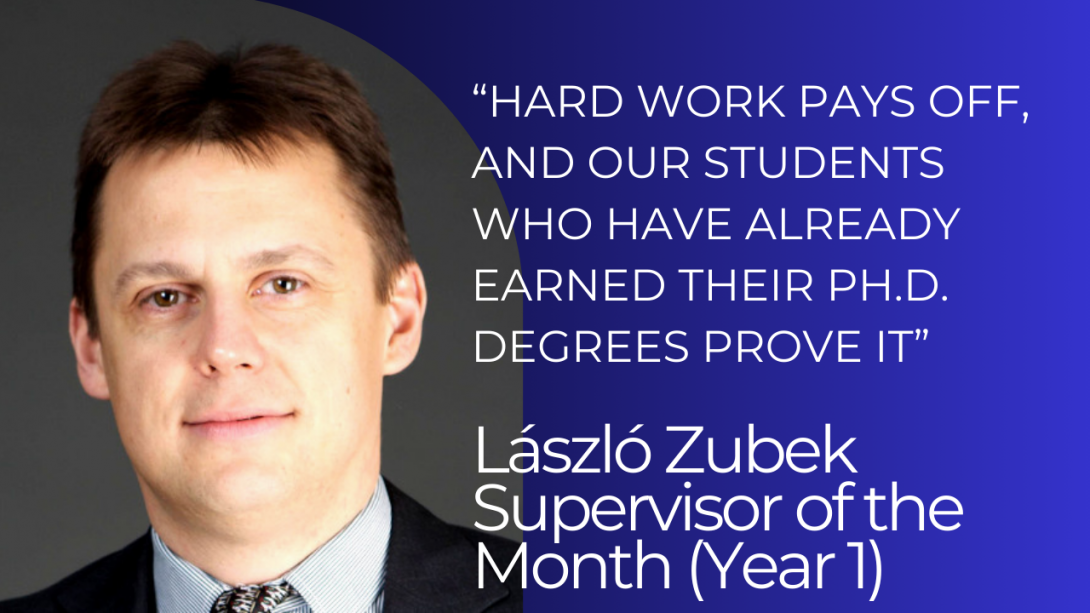
He is not just one of the leaders of the Critical Care Group, but also supervises almost all group members. He gives excellent advice and plays a crucial role in supporting the students’ work by never missing a group meeting. In January, László Zubek was named Supervisor of the Month (Year-1) at the Centre for Translational Medicine.
Dr. Zubek joined the CTM shortly after it started its operations in Budapest. Initially, he was invited to participate as an observer, but in time, he also became involved as a supervisor and soon became a group leader. “We lead the Critical Care Group together with Prof. Dr. Zsolt Molnár, and we are joint supervisors of many Ph.D. students. We support each other the same way as we do in clinical work, and we discuss everything. We think it is important to pass on our experience and knowledge to young healthcare professionals. Currently, we have nine Ph.D. students in our group, five of whom I am co-supervisor, and I also help the others. I attend all group meetings and project meetings, and I also consult with students individually if necessary.”
Dr. Zubek's students are trying to clarify important clinical questions. Dr. Krisztina Csőke-Kabai, a senior resident at the University of Szeged, Department of Emergency Medicine, deals with targeted neuroprotection for post-cardiac arrest patients. Zsuzsanna Weber, a medical doctor at the Department of Anaesthesiology and Intensive Therapy, Semmelweis University, studies hemodynamic management in the perioperative period of non-cardiac surgeries. Gábor Nagy, an advanced practitioner nurse at the Department of Emergency Medicine, Semmelweis University, is comparing the safety and effectiveness of personalized versus fixed-volume resuscitation in septic patients. In addition to the health professionals who have already graduated, Dr. Zubek has two MD-Ph.D. students, Júlia Hollósi and Liliána Nagy. Júlia is studying the role of immunomodulatory strategies to improve outcomes in sepsis, while Liliána is investigating the role of advanced hemodynamic monitoring in critically ill patients.
“My first-year Ph.D. students have not published their results in scientific papers yet, but I am confident that they will soon. They have every chance to do so, because their research is going very well, and they already have preliminary results. The biggest challenge in our work is to get the right answer to our research question. Extracting this from publications is not always easy, because each study gives results based on different indicators. This is why it is difficult to compare and summarize the studies. But hard work pays off, as our students who have already earned their Ph.D. degrees have proven.”
(Szabó Emese)